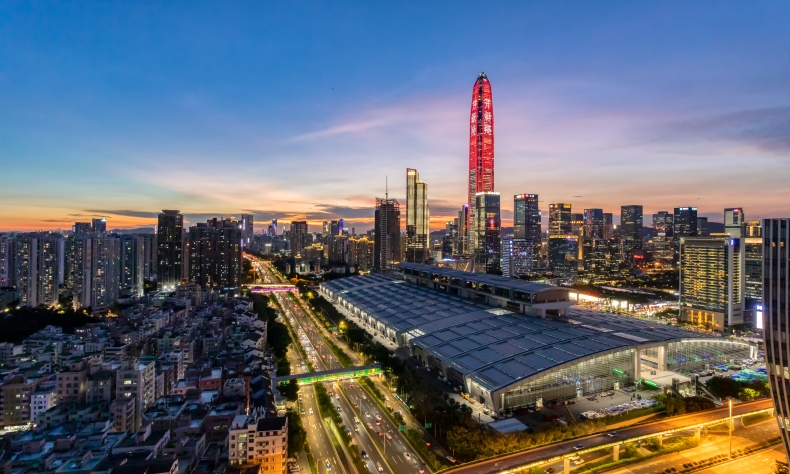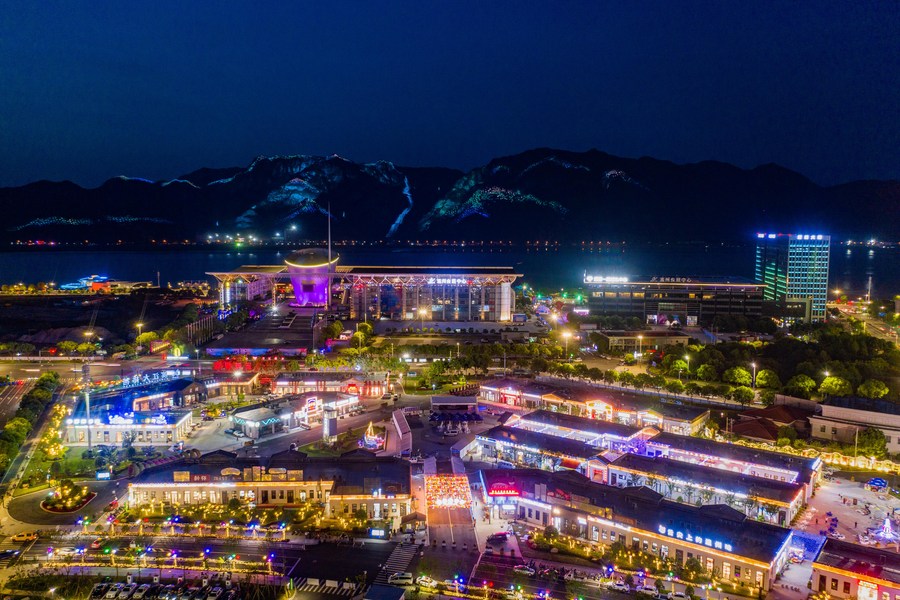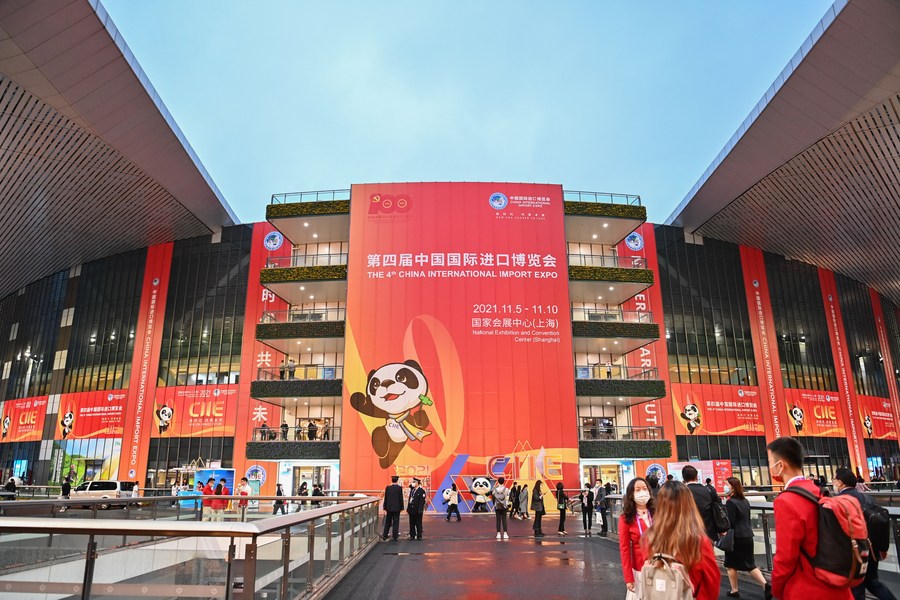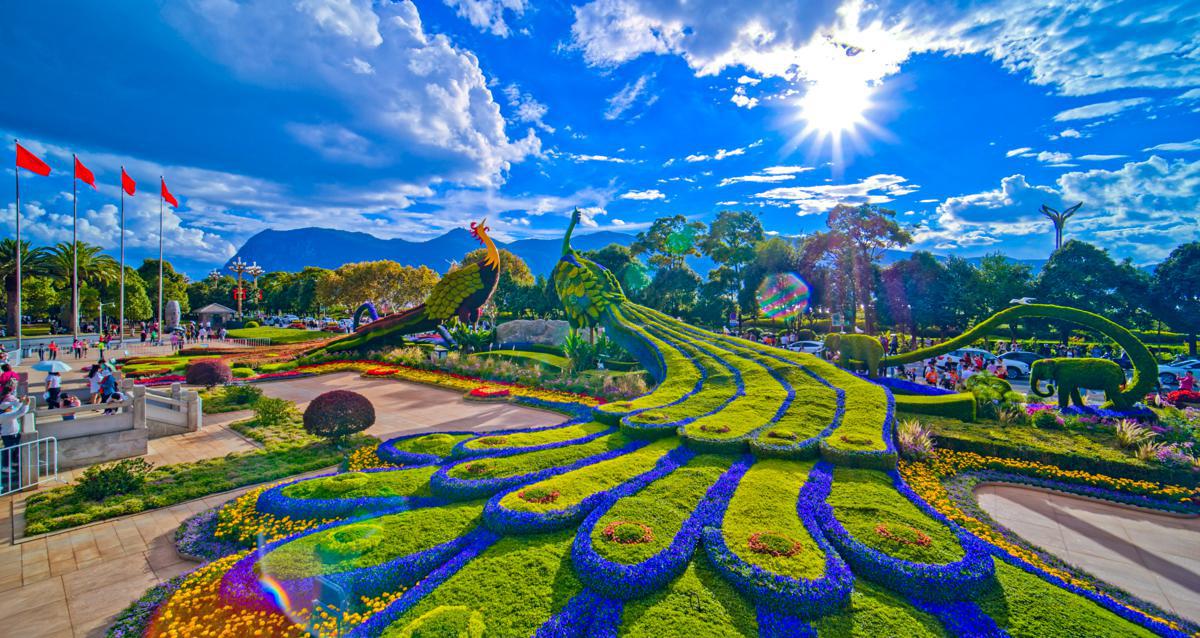Pivoting Toward a New Journey

With the new year right on the horizon, it is expected that peace, development, and cooperation will be its defining theme.
The year 2021 has been punctuated by a number of rememberable moments and landmark events. For Chinese people, the most heartening one is the celebration of the centennial of the Communist Party of China (CPC). Declaring the completion of the first centenary goal of building a moderately prosperous society in all respects, the country is now marching toward its second centenary goal of building China into a great modern socialist country in all respects.
Before the eventful year comes to its end, a very important meeting, the sixth plenary session of the 19th Central Committee of the CPC was convened in Beijing in November during which the Resolution on the Major Achievements and Historical Experience of the Party over the Past Century was adopted. By encapsulating the Party’s major accomplishments, the landmark resolution is intended to enhance Party members’ confidence in the path, theory, system, and culture of socialism with Chinese characteristics and help the Party unite and lead all Chinese people in making continued efforts to realize the Chinese Dream of national rejuvenation. The key plenum also reaffirmed the guiding role of Xi Jinping Thought on Socialism with Chinese Characteristics for a New Era in the country’s current modernization drive while defining it as the Marxism of contemporary China and of the 21st century. Since the 18th CPC National Congress held in 2012, guided by a series of original new ideas, thoughts, and strategies on national and international governance set forth by Xi Jinping, China has achieved its development targets and broken new ground in global governance.

Meanwhile, battling the COVID-19 pandemic and boosting global economic recovery have been an ongoing challenge for the world. Renewed surges globally in infections due to the highly transmissible delta variant has sent the global COVID-19 death toll soaring beyond 5 million. Research indicates that unvaccinated people are more susceptible to the variant. Therefore, vaccination has become even more important in curbing rising infections, which has also exposed the huge disparities between rich and poor nations, with the latter only accounting for 0.2 percent of all COVID-19 vaccine doses administered. At the Global Health Summit, Chinese President Xi Jinping announced that China would provide an additional US $3 billion in international aid over the next three years to support COVID-19 response and economic and social recovery in other developing countries. As of mid-November, China had provided more than 1.7 billion vaccine doses to more than 110 countries and international organizations, and plans to provide 2 billion doses within the year. At the same time, China has also launched the Initiative for Belt and Road Partnership on COVID-19 Vaccines Cooperation together with over 30 countries and carried out joint vaccine production with 19 developing countries, according to the Chinese foreign ministry.
On the economic front, while having built enough strength, China began to shift its focus to “common prosperity,” which became within its grasp when the country first started its reform and opening-up drive and has been regarded as a defining feature of socialism. The new focus has drawn heated discussion internationally with some Western media hyping it as a ploy by China to “rob the rich to give to the poor” and a sign that foreign businesses will find it hard to operate in the country. However, facts speak louder than words. In early November, over 2,900 enterprises from 127 countries and regions participated in the business exhibition at the fourth China International Import Expo (CIIE) held in Shanghai, with a total of US $70.72 billion worth of tentative deals sealed for one-year purchases of goods and services.

In his keynote speech delivered at the opening ceremony of the fourth CIIE, Xi Jinping stressed that opening-up is the hallmark of contemporary China. He further committed that China will firmly promote high-standard opening-up by shortening the negative list for foreign investment, expanding the opening of telecommunication, healthcare, and other services in an orderly fashion, and releasing a negative list for cross-border trade in services in the pilot free trade zones, among other measures. Those new measures show the country’s seriousness in honoring its commitments to the World Trade Organization (WTO) when the country joined the organization 20 years ago, and have also boosted foreign investors’ confidence in the Chinese market.
Meanwhile, China has proactively stepped up to its responsibilities as a major country in the year marking the 50th anniversary of the restoration of the lawful seat of the People’s Republic of China in the United Nations. At the General Debate of the 76th Session of the United Nations General Assembly on September 21, President Xi Jinping proposed a Global Development Initiative to revitalize the global economy and pursue more robust, greener, and more balanced global development, calling on countries to stay committed to development as a priority, to a people-centered approach, to benefits for all, to innovation-driven development, to harmony between man and nature, and to result-oriented actions.

In addition, China’s commitments to green development have also marked the year. After committing to not building new coal-fired power projects abroad in September, China announced its initiative to establish a Kunming Biodiversity Fund and took the lead by investing RMB 1.5 billion to support biodiversity protection in developing countries at the 15th meeting of the Conference of the Parties to the Convention on Biological Diversity (COP15) in October. The world’s morale in coping with climate change was further boosted by the agreement reached by the U.S. and China at the COP 26 climate summit in November intended to ramp up their efforts and cooperation in the field.
The highly anticipated virtual meeting between President Xi and U.S. President Biden in mid-November has assured the world that the world’s two largest economic powers will seek more cooperation instead of conflicts in leading global response to outstanding challenges faced by the whole world.
With the new year right on the horizon, it is expected that peace, development, and cooperation will be its defining theme.
 Facebook
Facebook
 Twitter
Twitter
 Linkedin
Linkedin
 Google +
Google +










